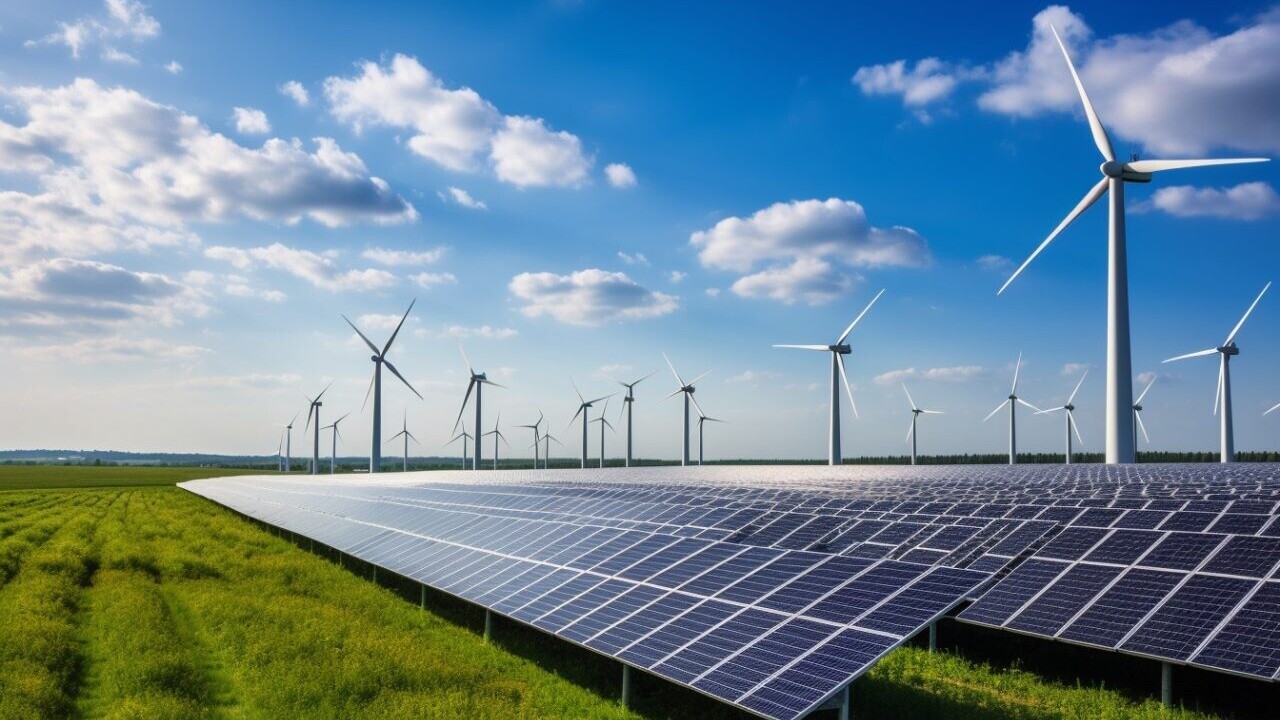
Germany’s Chancellor Olaf Scholz says he believes forthcoming green tech investments will benefit the country’s stagnated economy as a whole.
In a ‘summer interview’ with public broadcaster ZDF, the chancellor stated that the government has “moved at an incredible pace” when it comes to shifting legislation around hydrogen production and other renewable energy sources.
Indeed, in June this year, Germany overtook China as the second most attractive country for investing in renewables (the US ranks first). The country has set a target for renewable sources to make up as much as 80% of its energy mix by 2030 (currently at 46%). This is nearly double the provisional target of the EU as a whole (42.5%, aiming for 45%, set in March 2023).
High energy costs along with a shortage of skilled labour have been major culprits in slowing down the German economy over the past year. In a push for independence from Russian oil and gas, the government also temporarily backtracked on its promise to phase out coal as an energy source. However, the intention still stands to shut down all coal production by 2038 (earlier for certain states), and to reach climate neutrality by 2045.
To that effect, Germany has set up the Climate and Transformation Fund, worth €177.5bn. However, €47.6bn is set aside to help those struggling due to higher energy prices, and a further €20bn has been reallocated toward attracting international semiconductor manufacturers.
The government has thus far used that cash to lure companies such as Intel, TSMC, and Infineon to build chip plants in Germany, and in particular in what is being dubbed “Silicon Saxony.” Meanwhile, Scholz stated in the interview that these companies have not chosen Germany due to the generous state subsidies, but rather “as an economic location.”
Germany’s green hydrogen strategy
A big chunk of the fund (approx. €56.3bn) will go to the climate-friendly renovation of buildings, a sector currently holding Germany back when it comes to efforts in energy efficiency. The government has also allocated €19.9bn toward the decarbonisation of industry and the implementation of the Green Hydrogen Strategy.
The aim of the strategy is to have 30GW of electrolyser capacity in Germany by the end of the decade and to make the country a leading supplier of hydrogen technologies. It also foresees the construction of an initial “core” hydrogen network to enter operation by 2032.
Scholz’s coalition government adopted the updated strategy to accelerate the domestic hydrogen market in July this year. Energy industry association BDEW welcomed the update. However, it said it lacked a clear alignment between funding mechanisms, general framework conditions, and market design.
“Energy companies are willing to invest in a hydrogen economy, but they need a clear framework, both at national and European level,” BDEW head Kerstin Andrae told Clean Energy Wire last month.
Meanwhile, climate NGOs are sceptical as the strategy says that state subsidies could potentially go to blue hydrogen (produced from fossil fuels but using carbon capture) projects.
Despite the updated strategy, Germany will need to import 70% of its hydrogen demand if it is to succeed in reaching climate neutrality by 2045. With green hydrogen currently accounting for about 1% of global supply, the question is who is going to produce it.
Get the TNW newsletter
Get the most important tech news in your inbox each week.




